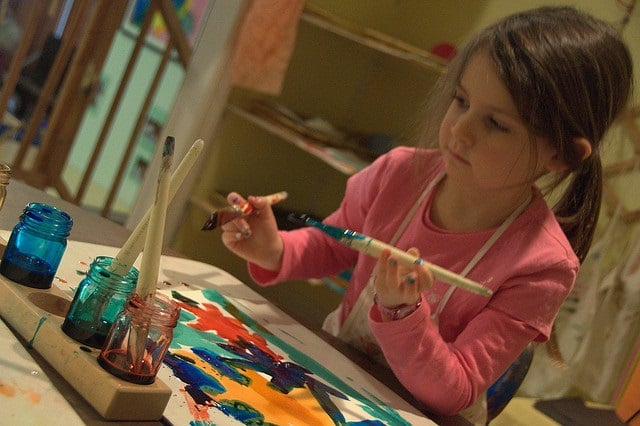
Photo: Wellspring Community School (CC BY 2.0)
Academic benefits of the arts remain unproven
Teach the arts for their intrinsic value, says the Head of The Education Endowment Foundation.
The Chief Executive of the Education Endowment Foundation, Sir Kevan Collins, has advocated teaching art for its own sake, following new research that found no causal link between arts education and academic attainment.
“Of course, the absence of evidence is not the same as the evidence of absence,” said Collins. “We should continue to investigate links to other outcomes we value, but we shouldn’t expect everything to link tightly to academic attainment. Instead, we should teach the arts for their own sake – for the intrinsic value of learning creative skills and the enjoyment they bring.”
The review of around 200 international studies, conducted by academics at Durham University, found that there are as many examples of arts participation leading to better learning as there are examples of it having no or a negative effect.
The lack of evidence of the educational benefits of arts engagement may be an issue for schools that currently use their Pupil Premium funding – public money intended to help disadvantaged pupils catch up with their peers – for arts activities. Collins warns: “If the arts are to be taught as a means to boost academic achievement then teachers and schools need to evaluate carefully whether that aim is actually being delivered.”
The majority of the studies included in the report focused on music education and a combination of art forms, and most were conducted with primary school aged children. Tentative evidence does suggest that music education may have beneficial effects. Learning a musical instrument, for example, is associated with improved wider educational outcomes for children.
Activities that were successful in improving learning often involved professional artists. The report recommends professional training for teachers on how to integrate arts activities into the classroom, as well as working more closely with professional artists. It also calls for more rigorous and robust evaluations of the impact of arts activities and the development of rich measures to evaluate the impact of the arts on learning.
Join the Discussion
You must be logged in to post a comment.